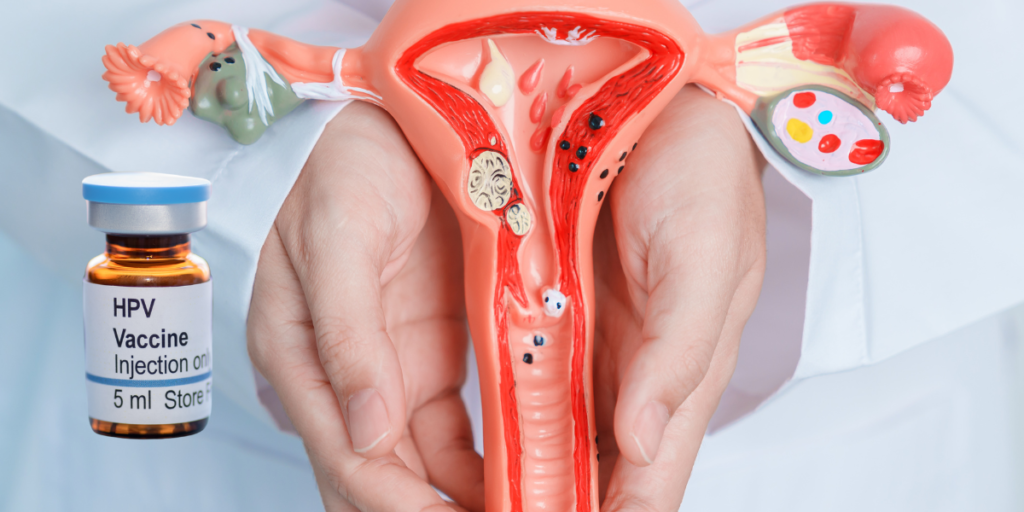The World Health Organization (WHO) has recently confirmed that Cecolin®, a fourth HPV vaccine product that has received WHO prequalification, is now approved for use in a single-dose schedule. This decision is based on new evidence indicating that Cecolin® meets the criteria outlined in WHO’s 2022 guidelines for the alternate, off-label use of HPV vaccines in single doses. This significant development is expected to enhance the sustainable supply of HPV vaccines and increase the number of girls receiving these essential cervical cancer prevention vaccines.
“Unlike most other cancers, we have the ability to eliminate cervical cancer, along with its painful inequities,” remarked Dr. Tedros Adhanom Ghebreyesus, WHO’s Director-General. “By adding another option for a one-dose HPV vaccination schedule, we have taken another step closer to consigning cervical cancer to history.”
It’s alarming to note that over 95% of the 660,000 cervical cancer cases worldwide each year can be traced back to HPV. Tragically, a woman dies from this preventable illness every two minutes, with 90% of these fatalities occurring in low- and middle-income nations. Of the 20 countries most severely affected by cervical cancer, 19 are located in Africa.
Since 2018, the introduction of HPV vaccines has faced significant hurdles due to global supply shortages. Additionally, production issues experienced by one of the manufacturers earlier this year have led to further shortages, which could affect millions of girls in need of the vaccine in both Africa and Asia.
“Achieving 90% vaccination coverage among girls with the HPV vaccine by 15 years of age is the goal for the first component of the WHO’s global strategy to eliminate cervical cancer,” stated Dr. Kate O’Brien, Director of the Immunization, Vaccines, and Biologicals department at WHO. “With ongoing supply challenges, the introduction of this single-dose vaccine provides countries with more options to ensure that more girls are vaccinated.”
A growing range of vaccines that were initially approved for a two-dose schedule can now also be administered as a single dose. The new indication for the single-dose use of Cecolin® has been included in the second edition of WHO’s technical document regarding considerations for choosing HPV vaccine products (as noted in Table 4 of the document). In line with other vaccines and medications, public health advisory bodies can recommend “off-label” use when supportive data exists and is backed by a clear public health benefit, until a manufacturer officially includes this new use on their labeling.
Recent global data released on July 15, 2024, shows a rise in single-dose HPV vaccine coverage among girls aged 9-14, climbing from 20% in 2022 to 27% in 2023. In 2023, 37 countries adopted the single-dose schedule, and by September 10, 2024, this number had increased to 57 countries. WHO estimates that the shift to a single-dose schedule has successfully reached at least 6 million additional girls with HPV vaccines in 2023 alone.
Earlier this year, countries and partners pledged almost US$ 600 million in new funding aimed at eliminating cervical cancer. This financial support includes US$ 180 million from the Bill & Melinda Gates Foundation, US$ 10 million from UNICEF, and US$ 400 million from the World Bank. Coupled with Gavi’s ongoing commitment, these investments are set to accelerate vaccine introductions and enhance coverage of the HPV vaccine among girls by 2030.
What is WHO Vaccine Prequalification?
The World Health Organization (WHO) offers a prequalification service to UNICEF and other United Nations agencies that are involved in vaccine procurement.
The primary aim of WHO vaccines prequalification is to confirm that the vaccines utilized in immunization programs are both safe and effective. This prequalification process also caters to the specific requirements of national immunization programs, focusing on various vaccine characteristics such as potency, thermostability, presentation, labeling, and shipping conditions. This ensures that more individuals can receive vaccinations with safe, effective, and high-quality vaccines since program managers can effectively plan, choose, and procure the right products.
In the process of prequalifying vaccines, the WHO uses international standards to thoroughly assess and ascertain the safety and effectiveness of these vaccines. To maintain the safety and effectiveness of prequalified vaccines over time, WHO conducts regular re-evaluations, site inspections, targeted testing, and investigates any product complaints or adverse events that arise after immunization.
National regulatory agencies (NRAs) and national control laboratories (NCLs) are crucial to the WHO vaccines prequalification process. They are responsible for overseeing regulations, testing, and the release of vaccines that have received WHO prequalification.
Benefits of WHO Vaccine Prequalification
Vaccine prequalification serves as an important resource for various stakeholders, including procurers, regulators, national quality control laboratories (NCLs), manufacturers, and donors, assisting them in reaching their public health goals.
The selection of vaccines for WHO prequalification is guided by a biennial prioritization list that reflects the public health needs of Member States, programmatic requirements, and supply security concerns. Since the establishment of this initiative, WHO vaccine prequalification has achieved several important milestones:
The quality and safety of products are closely monitored, with investigations conducted into any complaints or adverse events reported following immunization from these programs.
- It has ensured that prequalified vaccines adhere to WHO standards for good manufacturing practices and good clinical practices, as well as meet the operational packaging and presentation requirements specified by the relevant United Nations agency.
- The program has enhanced health outcomes for national immunization initiatives by providing immunization managers with a curated list of suitable products tailored for challenging operational contexts.
- It has facilitated the introduction of a diverse array of vaccines, further speeding up the achievement of international vaccine coverage targets.
- The implementation of WHO standards regarding the quality, safety, and efficacy of vaccines used in immunization programs has been strengthened.
- Regular product re-assessments and targeted testing of samples have ensured that product standards are maintained throughout immunization program execution.
- The capacity of NCLs to rigorously verify vaccine compliance with WHO prequalification standards has been confirmed.
- Additionally, the program has bolstered the capabilities of national regulatory authorities to provide essential oversight for prequalified vaccines.

